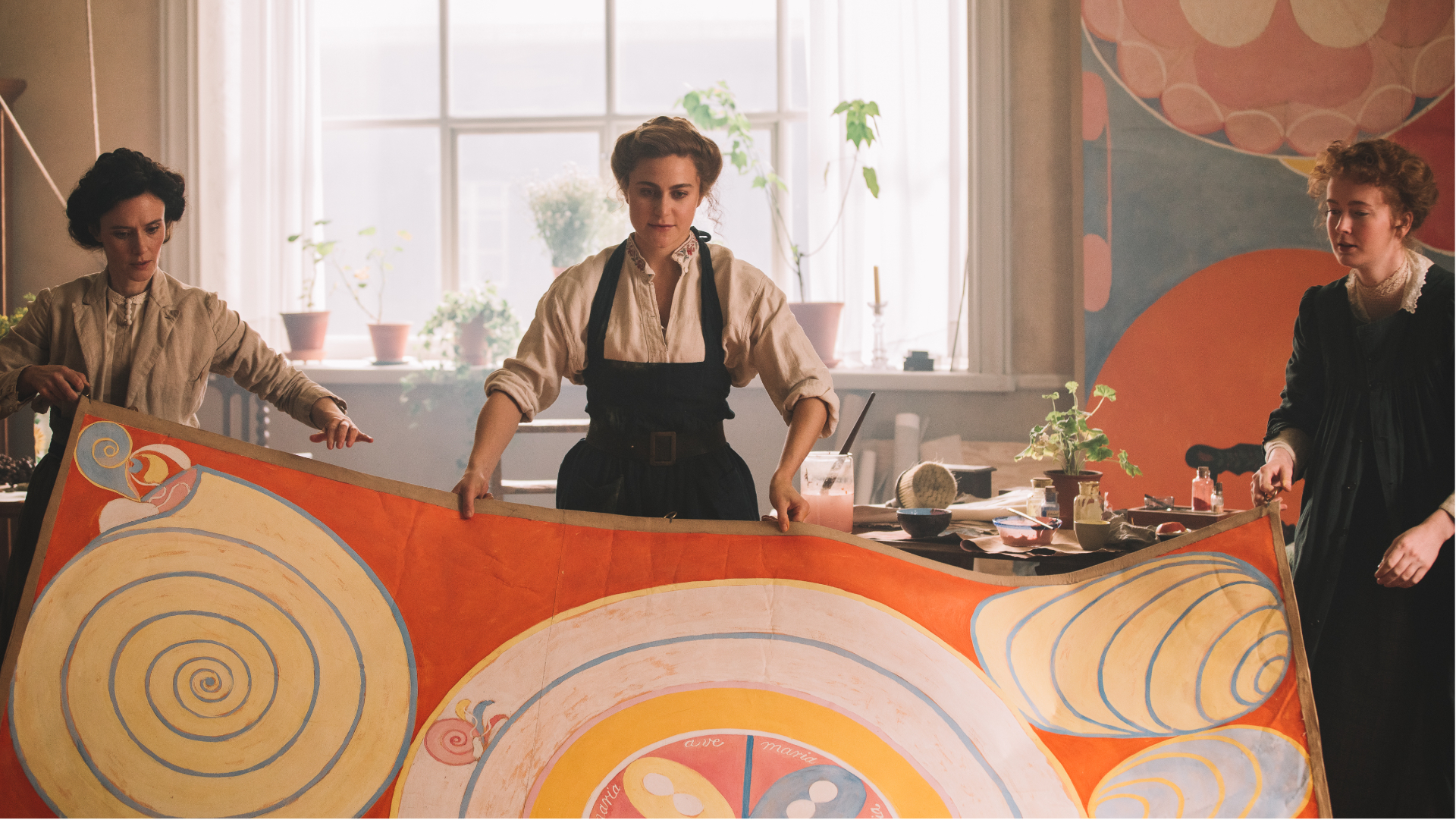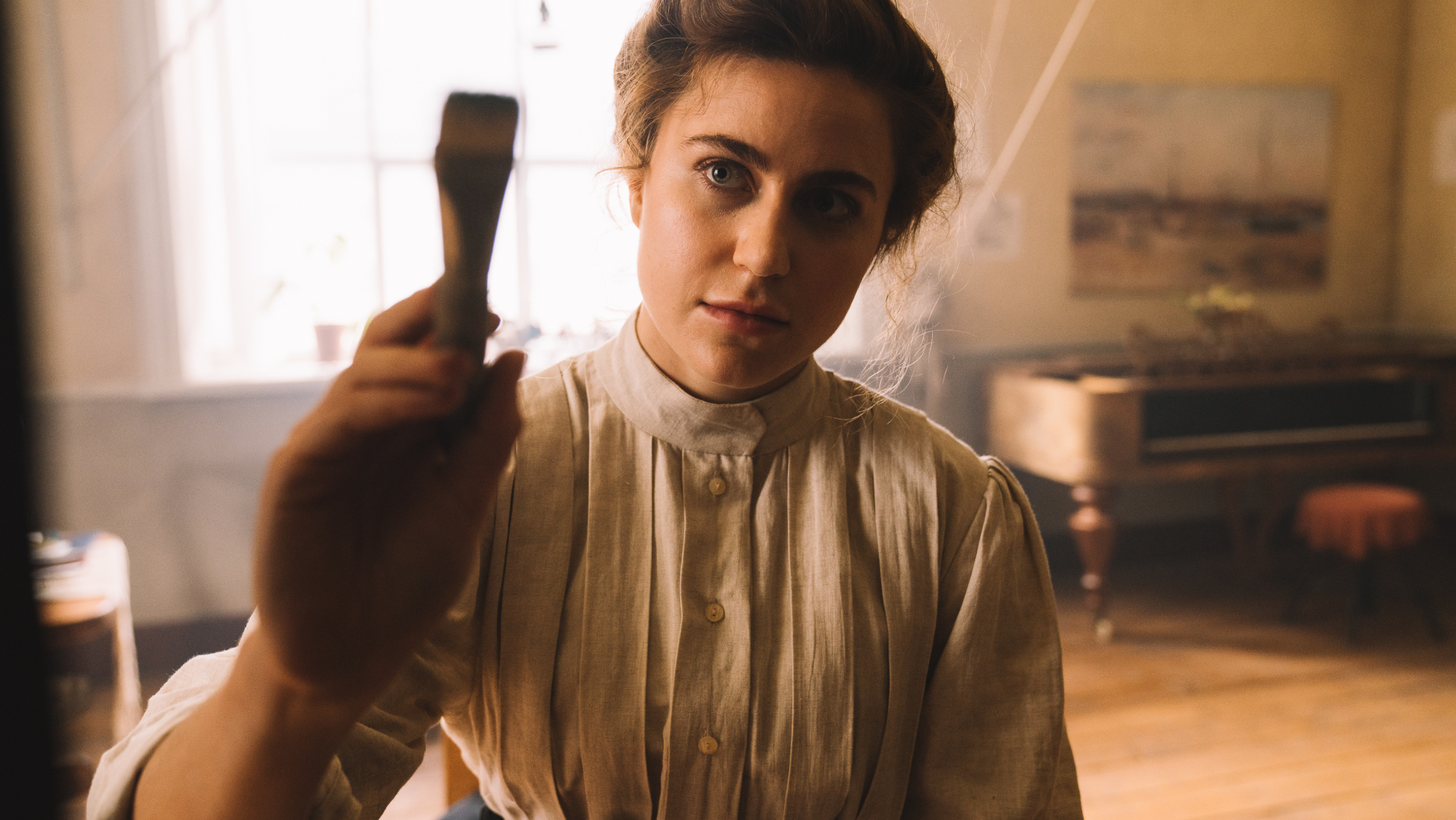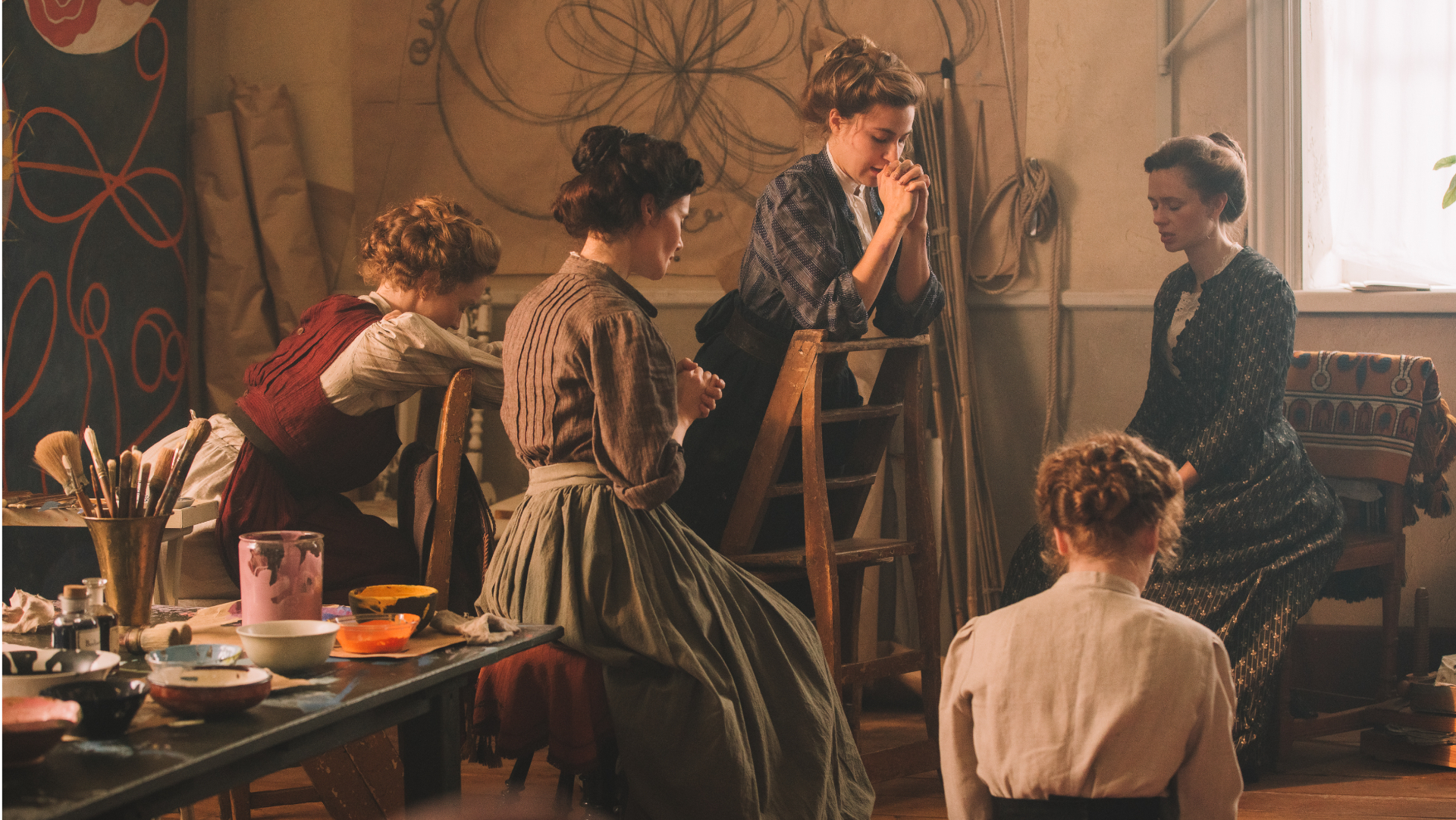The cast of new artist biopic Hilma talk communing with the dead to prepare for the movie
Exclusive: We talk to director Lasse Hallström and the cast of his new Hilma af Klint biopic

Swedish artist Hilma af Klint is thought to be one of the Western world's first abstract painters – but have you heard of her? A Spiritualist (the belief that it's possible to communicate with spirits) as well as an artist, the two things are inextricably linked for af Klint, and her huge paintings have an awe-inspiring feel to them. Unable to find renown or recognition in her own lifetime, she’s now the subject of a biopic, titled Hilma, from writer and director Lasse Hallström, best known for What's Eating Gilbert Grape and Chocolat.
"I heard the name of this painter from Lena [Olin, Hallström's wife] and started reading about her and got obsessed,” Hallström tells Total Film as we discuss the film in a central London hotel. "I was wanting to write something on my own, because I had really been working on other people's stories for such a long time. Last time I made a script on my own was [1985's] My Life as a Dog, based on a novel. So I felt like I really wanted to control the whole project."
Hilma – played by Tora Hallström, daughter of Lasse – became involved with Spiritualism while she was attending Sweden's Royal Academy of Fine Arts in the 1880s. There, she met Anna Cassel, one of the founding members of a group of women known as the Five, the other members being Cornelia Cederberg, Sigrid Hedman, and Mathilda Nilsson.
"I think it was a really fascinating time," says Lily Cole, who plays Mathilda. "You had Christianity being the orthodoxy for so long in Europe and then, suddenly, you had a lot more Eastern ideas coming across, and science and psychoanalysis, photography, technology, there was so much changing. It was an incredibly powerful, transitional time."
"This was the realm where women had power," Maeve Dermody, who plays Sigrid, adds. "Women were holding the seances." The Five were some of these women, using seances and reaching out to make contact with the 'spirit realm' to get inspiration for their art. In order to prepare for their roles, some of the actors got method with their research.

"We worked with a psychic in Stockholm," Cole explains. "Me and three of the other actresses as part of the Five spent time with him. And that, for me, felt really respectful. Because it's using the tools that the women used themselves as a way of getting information, so I personally made peace with honoring them through that process."
The psychic, a friend of a friend of the Hallströms named Benny, "has this amazing energy and doesn't really put on a show to prove that he's speaking to the other side, so you fully believe that it's true," according to Tora Hallström.
Sign up for the Total Film Newsletter
Bringing all the latest movie news, features, and reviews to your inbox
"He came into contact with Hilma and you could just see how he changed, authentically changed, and he felt her energy. She was so excited to be doing this because this was how she got inspiration for her art, and this was obviously something that she enjoyed doing. She was funny and came with these really interesting facts and little anecdotes from how she was in her private life that we can't read about in the books about her that made it into the film."
Cole says a lot of the information from Hilma was "about the emotional dynamics and the relationships between these different women that you would never be able to know because it's not documented – who was in love with who, when there were any frictions and tensions between them." Dermody adds that they found out the group experimented with wearing men's clothing and "taking on masculine energy."
"He hadn't read anything about Hilma," Cole continues. "Everything he would say would be based on what apparently she was saying and he was hearing. My character, Mathilda, founded the spiritual magazine Spiritual Society, so when I went into that session I was fully Mathilda. Like, 'I'm not going to doubt this for a second because I have to honor the faith that Mathilda had and these women had', and bizarrely it sort of stayed, that faith, and it feels amazing."

In the movie, Hilma's friendship with Anna (Rebecca Calder), her first friend at the Royal Academy, turns romantic and sexual, a part of her life that isn’t readily available to read about. Did Benny the psychic shed any light on that? "I think it's really important to the film to have it in there, but it's more speculative," Tora says. "But we did get it confirmed through Benny and through Hilma that they did have a relationship, and that was her big love, and that there were relationships which aren't in the film between the five women. There was a lot of jealousy and very complicated relationships between all five."
Despite how closely the Five worked together, it's Hilma's name that is the most well-known today – her work has been exhibited in institutions like the Serpentine Galleries in London and the Guggenheim Museum in New York City. Cassel, Cederberg, Hedman, and Nilsson, however, have not had the same fate.
"The thing I really love about the film's focus on the Five is that, if you did have a feminist revision of art history, it would probably move away from things like singular heroes and recognize that all great art is usually a collaborative effort, even if there was one leader or one person at the helm," says Cole. "Still today, as Hilma becomes recognized, it's very much like a singular hero, she's by herself as this outlier amazing woman. Of course, it's true that she's an incredible woman. But it's powerful and important to recognize that, actually, her work came out of 20 years of these five women working together and doing it very collaboratively."
Lasse Hallström kept it in the family for his latest piece of filmmaking – while his daughter, Tora, plays the younger version of Hilma, his wife, Olin, plays an older version of the artist. "It's just wonderful," Olin says of working with her husband. "It's just a dream. It's very free and relaxed. I trust him so completely and how he takes care of what you give, if you will, on set. You never have to worry about how it's going to be taken care of, so that's lovely."
This is Tora's first leading role in a movie – what was it like to take that on with her own father in the director's chair? "I realize the optics of it doesn't look great," she laughs. "But I just went into it with an open heart, thinking, 'I'm just gonna do the best I can and prove that this wasn't just handed to me for no reason.' I felt so connected to the script immediately that all of these emotions were coming up for me from the get-go and then coming into contact with Hilma just really gave me a lot of strength through the filming process so I was never nervous about it. Having [Lasse] behind the camera, I know he's very, very honest with me and holds me to a very high standard, so it felt very safe."
"It was during the pandemic when we first started looking at the early version of the script, and we had these workshop sessions as a family," says Tora. "We were always from the get-go very aligned on who we wanted Hilma to be. We fell into agreeing on exactly what she stood for and how she would react to certain situations and then, towards the end, we got into more details, like, how she moved, what are the mannerisms? I would watch [Olin] and then try to bring that to life."
Hilma is out now in UK cinemas. In early 2023, Hilma will also be available on Viaplay UK, Viaplay’s streaming service set to launch in the UK this autumn. For more viewing inspiration, check out our picks of the rest of the year's biggest movie release dates.
I’m an Entertainment Writer here at GamesRadar+, covering everything film and TV-related across the Total Film and SFX sections. I help bring you all the latest news and also the occasional feature too. I’ve previously written for publications like HuffPost and i-D after getting my NCTJ Diploma in Multimedia Journalism.


